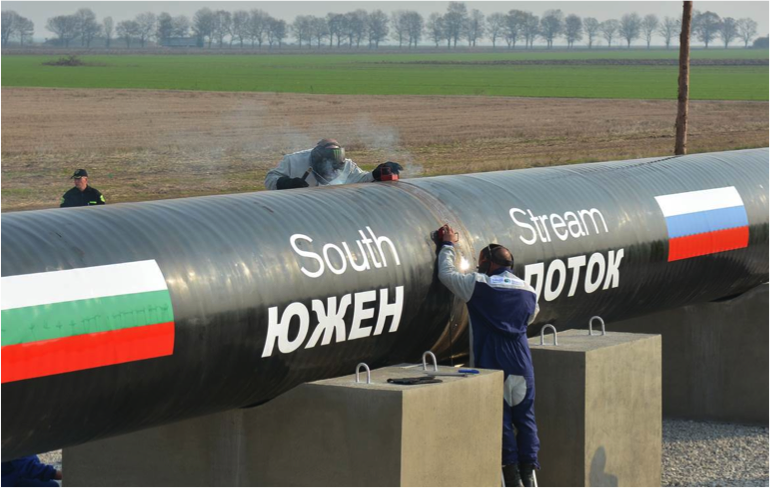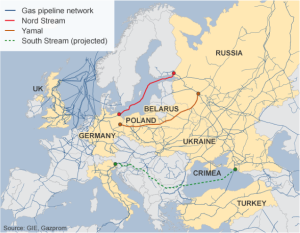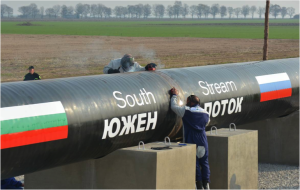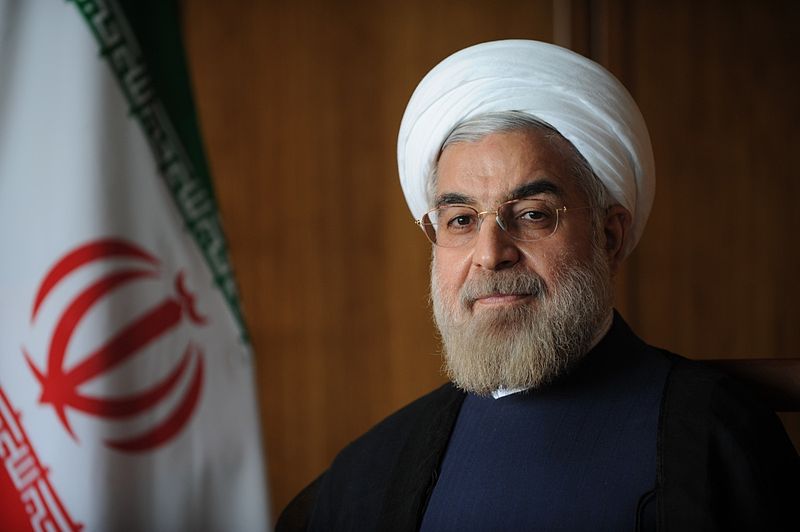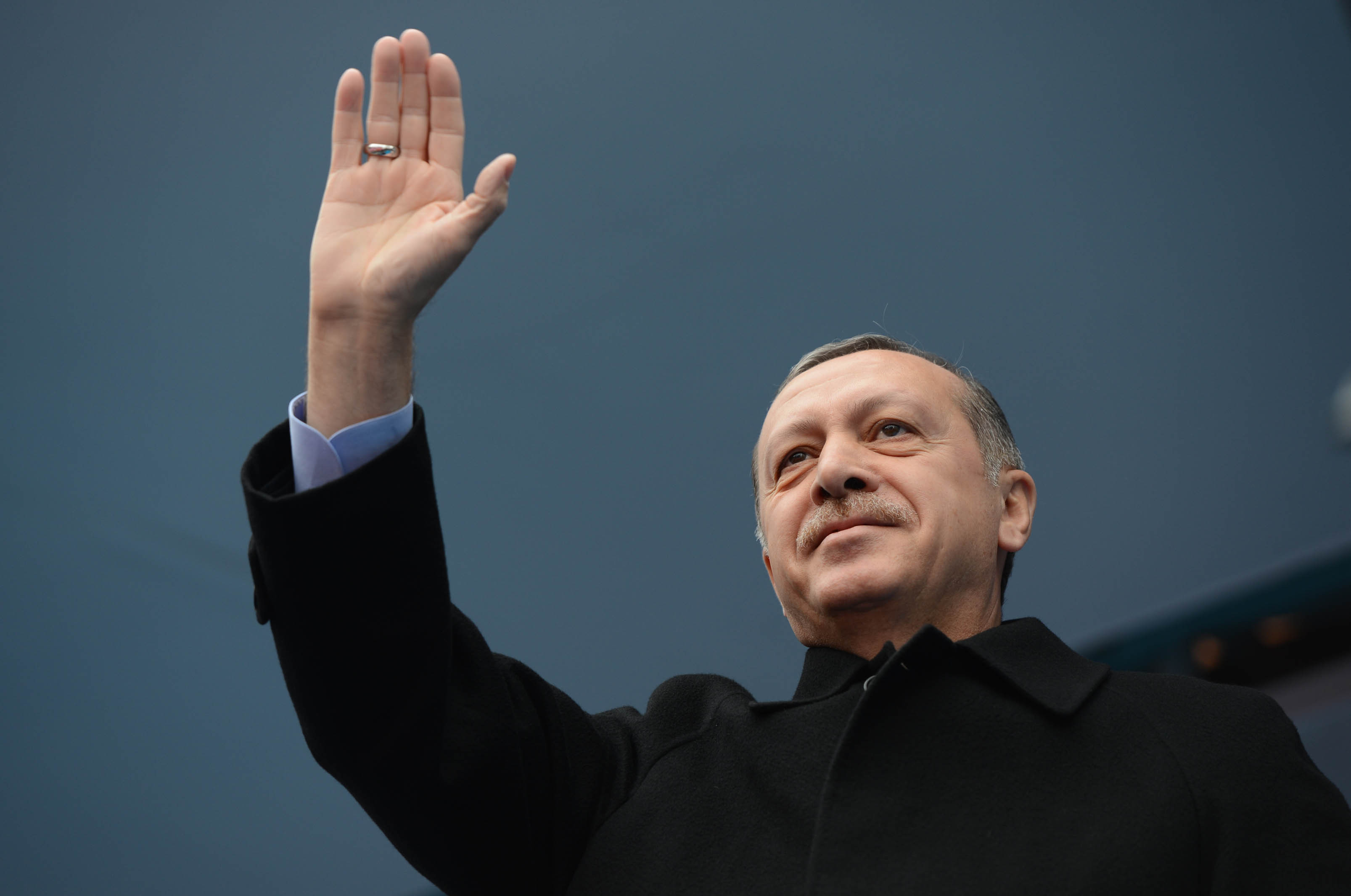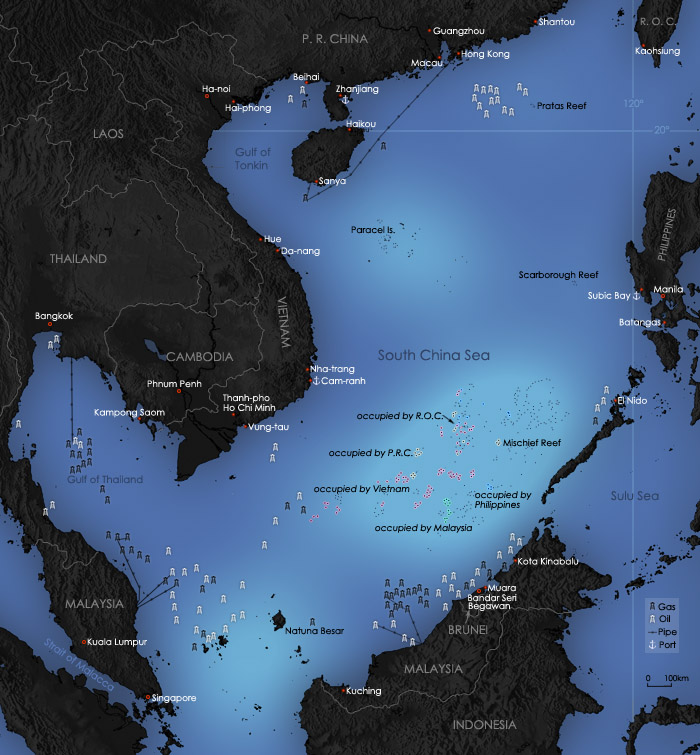On Monday December 1, 2014, Russia discontinued the development of the South Stream pipeline project amid legal conflicts with the European Union. Turkey was instead named as a new preferred partner and recipient of a new gas pipeline, which will connect Russia to the Turkish-Greek border region.
South Stream was to be built under the Black Sea and would have travelled through Bulgaria, Serbia, Hungary, and Slovenia. Construction on the 930km, $400 billion pipeline began in October 2013 in Bulgaria and it was expected that the pipeline would reduce the possibility of unreliable gas supply though Ukraine. The route was expected to become fully operational by 2018, but was suspended in June 2014 due to objections from the EU as to the project’s legality. The Union repeatedly stated that the pipeline violated the block’s Third Energy Package, according to which it is illegal to own a pipeline and produce the natural gas that flows through it at the same time. Although Russian gas giant Gazprom CEO Alexei Miller stated that the Package had nothing to do with the cancellation, it has been a controversial issue for some time.
According to Miller, the cancellation of South Stream is a step toward a different strategy Gazprom is developing for the European market. The company will cease its focus on delivering gas to the end consumers in the EU, effectively forcing them to purchase gas on the Turkish-Greek border, where a gas hub is planned to be constructed to supply Southeastern Europe.
The new proposed pipeline to Turkey is projected to have an annual capacity of 63 billion cubic metres (bcm), more than four times Turkey’s current annual purchases from Russia. Russian President Vladimir Putin announced last week that Turkey would be granted a 6% discount on its gas imports from Russia next year and that Gazprom has signed a memorandum of understanding with Turkey’s Botas regarding the new underwater pipeline. “As our cooperation develops and deepens, I think we will be ready for further price reductions,” said Miller regarding further cooperation with Turkey on a state visit to Ankara last week with President Putin.
The new venture will also effectively eliminate Ukraine, which currently transfers about half of Europe’s 30% gas supply coming from Russia, as a transit state within the EU-Russian energy relationship. Although enough gas will be supplied to the country to satisfy national demand, the state will no longer play a role in the transit process. Other countries included in the initial South Stream project will also be affected by its scrapping.
For example, Serbia expressed regret at the cancellation, voicing concerns as to the security of its future gas supply. Although citizens were told not to worry, the country would have benefited from better energy security, revenues in transit fees, and an economic boost during the construction of the pipeline. European companies involved in South Stream will suffer direct losses of at least €2.5 billion and the total losses for foreign companies involved in the project are estimated at €2.82 billion, according to the South Stream Transport press release.
For other countries, the cancellation will not make a significant difference in future supply reliability; it also will not result in significant financial losses. Romania, which has the lowest reliance rate on Russian gas among all eastern EU members, has expressed interest in further diversifying its energy supply by linking its eastern coast to the existing gas grid. The state is relying heavily on new gas discoveries in the Black Sea basin, following explorations by Exxon Mobil Corp and OMV Petrom SA, in its calculations. The companies are currently drilling a third well in the Black Sea to estimate the potential resources and test the commercial viability of the deposits.
While the end of the South Stream pipeline project and the announcement of a new pipeline between Russia and Turkey will have a different effect on all those involved, neither the route nor the funding for the project have been specified, despite the fact that both Miller and Putin actively promoted the new pipeline to Turkey. Experts also point out that the pipeline is likely to be costly and that Turkey’s strong negotiating position and unresolved political concerns may cause concerns.
Additionally, Gazprom may have a problem providing the required funding for the project, given its current construction schedule, including a massive gas pipeline to China. Also, as Mikhail Krutikhin, an analyst at the Russia-based RusEnergy consultancy, pointed out, Turkey will not be obligated by the same transit agreements as Ukraine was before. While Gazprom maintained control over its gas in Ukraine, Turkey is likely to want to re-export the supply as its own, judging by its negotiations for gas supplies with Azerbaijan and Iran.

